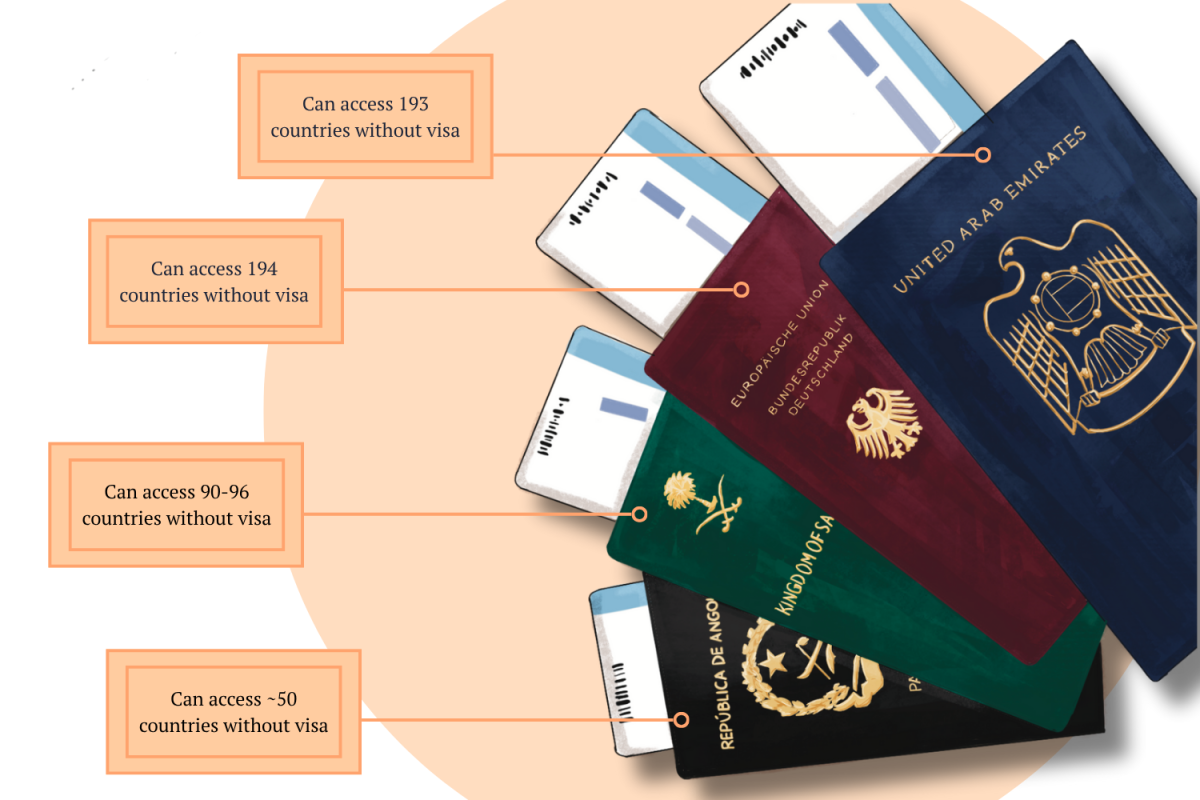Who does your feminism include?
March 1, 2018
Feminism. 8 letters. Years of progress that can not be put together in a single word. From women’s suffrage, to the push for sexual rights, to the recent Women’s Marches, feminism has been a major source of the strides made regarding gender equality.
Let’s break it down, though. What does feminism mean to us? Is it breaking down the gender wage gap, making sure that women no longer make 81 cents to the man’s one dollar? Is it smashing the patriarchy, making sure that women feel that they are someone, not someone’s? Is it voting for more women into Congress, making sure that the voices of us, women, are heard?
Though the goals I’ve stated above are important and valid, it’s important to think of the bigger picture of feminism. I am in no way here to say that feminism is bad, nor am I here to say that any of the goals I’ve stated are not worth pursuing. Feminism means different things to different people, and it’s not my place to trivialize someone’s motivations for being a feminist. I, for one, would love to break down the gender wage gap, make sure that all girls feel beautiful and have more representation of women in government.
But, there is more to feminism than meets the eye, and we need to stop thinking of it as solely an issue between men and women. If we run on the assumption that all women experience discrimination the same way, are we truly representing the unique stories of all women?
The answer to that question is no, we are not, because a person’s overlapping identities allow them to experience oppression and discrimination differently.
For example, let’s take a look at the gender wage gap. For every dollar a man makes, a woman makes 81 cents, right? Somewhat. Not all women make 81 cents for every dollar a man makes, and to have the whole picture, one must take race into consideration. When you do so, the statement now reads: for every dollar a White man makes, a White woman makes 81 cents. Women of color, however, fare differently. For every dollar a White man makes, Black women are paid 65 cents, Hispanic women are paid 59 cents, and Asian women are paid 88 cents. See where race plays in?
When looking at feminism, it’s more than just the inequality between men and women. When we think of it that way, we fail to realize that women often hold identities beyond being a woman, whether it’s their race, their sexuality, or their religion. If feminism is equality, we need to make sure it’s equality for all. Feminism is important, it is necessary, and it will benefit all of us if we allow it to. Feminists have fought for women’s suffrage, reproductive rights, and so much more, but that doesn’t mean the inequality between all women has dissipated. According to Human Resources Campaign, only 35 percent of heterosexual women have experienced rape, physical violence, or stalking by an intimate partner, compared to 44 percent of lesbian women and 61 percent of bisexual women. In 2014, Black women were twice as likely than White women to be imprisoned. Incarcerated transgender women are being placed into men’s prisons. While existing accomplishments are integral to progressing gender equality as a whole, we must to take a step back and make sure that when we fight for women’s rights, that we fight for the rights of all women. There is no excuse for any of us to say “We’ve done enough, we don’t have to worry about it any more.” There is always room for improvement.
Like I’ve said before, I’m not here to say that feminism is bad in any way; women from all walks of life have made significant strides, whether big or small. I’m not here to say that we no longer need feminism. I’m here to say that all of us, regardless of who we are, need to ask ourselves this question: Who does my feminism include?
Check out the full multimedia package on feminism here: https://lhsepic.github.io/ExploringFeminism/index.html




































































Alexander Brittain • Feb 1, 2019 at 5:21 pm
Hello, I’m curious what your goal is as a feminist. I know you believe you want equal rights, but you already have them, and in many ways are “privileged” as a woman. Let me explain. First you mentioned the wage gap myth, which has been debunked numerous times but I’ll explain it’s flaws. It doesn’t account for education, sick leave, time taken off, promotions, or even the same job or experience. When you account for most of the factors the wage gap shrinks to 6.6% of what a man makes on average. This still seems unfair but that is also accounted for the fact that women (on average) work less hours than men and go into lower paying fields. Now to address your point that minorities experience pay discrimination let me ask this question: if companies can pay people less because of gender, race, or ethnicity, (which is illegal, and has been since 1963) then why don’t companies only hire women? or Latinos? They would save thousands. The answer is because they don’t. The explanation of the pay differences with race is that the average black man is younger than the average white man, (which is 42). This explains the difference because of lack of experience due to age. The only outlier is Asians which make $1.17 to every white person’s $1. Are white people screaming “DOWN WITH ASIAN SUPREMACY”? No. To address your point of blacks being more likely to be incarcerated than whites, that’s simple. Black people statistically live in low income, high crime areas, and are more likely to commit crime (FBI reports 2016). Also your point about feminism requiring more women to be in congress to let their voices be heard. I hope you don’t mean we should put women in congress because they are women. (I’m sure you don’t mean that.) But in my opinion, I say if a woman wants to be in politics, let her. You probably thought I was going to say they shouldn’t. I hope that covers most of it.
-Alexander Brittain (the MAGA hat kid)